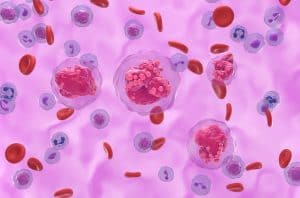UK doctors are ignoring statin guidance
pharmafile | November 3, 2014 | News story | Sales and Marketing | British Medical Association, GPs, NHS, NICE, Royal College of GPs, Royal College of Physicians, statins
A survey of UK doctors has found that many are refusing to apply NICE advice to offer statin therapy to low-risk patients with high cholesterol.
Two-thirds of GPs said they were not prepared to follow new guidance from the National Institute for Health and Care Excellence -released in the summer – which says statins should be prescribed to people with a 10% risk of developing cardiovascular disease (CVD) over 10 years.
To do so would put up to 40% of adults in line to be prescribed statins and is tantamount to ‘medicalising’ otherwise-healthy members of the public, according to some of the responses to the survey, which was carried out by Pulse magazine.
The NICE guidance has proved controversial since it was first revealed in draft form earlier this year, with critics claiming that it is based in part on pharma industry-funded research that underestimate the side effects of statin therapy. It has also led to calls for the government to tighten up NICE’s conflicts of interest policy.
After the guidance was published, leading medical organisations – including the Royal College of Physicians, British Medical Association (BMA) and Royal College of GPs – said the benefits in a low-risk population do not outweigh the risks of placing some five million people on drugs that would have to be taken on a life-long basis.
Around seven million people in the UK are prescribed statins and NICE estimates that a further 4.5 million people would become eligible with the 10% threshold.
Some respondents to the survey who said there were prescribing within the guidelines told Pulse they were doing so against their better judgment, and to avoid any risk of legal comeback from not following NICE’s recommendations.
For its part, NICE insists the new guidance could prevent up to 28,000 heart attacks and 16,000 strokes each year and save 8,000 lives every three years, although this interpretation has been disputed by the BMA GPs committee, which said in July that drug treatment has “not been shown to reduce mortality in low-risk patients significantly”.
The panel also said that widespread statin prescribing may not be economically viable given the financial pressures on the National Health Service and the increased workload facing GPs.
NICE insists that not everyone with a 10% or greater risk of CVD within 10 years will need to take a statin, adding that the guideline advises that preventative lifestyle measures are adopted first.
“Doctors have been giving statins to ‘well people’ since NICE first produced guidance on this in 2006,” commented Professor Mark Baker, director of the Centre for Clinical Practice at NICE.
“The overwhelming body of evidence supports their use, even in people at low risk of CVD,” he added.
Phil Taylor
Related Content

NICE recommends migraine treatment for NHS use
The National Institute for Health and Care Excellence (NICE) has shared draft guidance recommending AbbVie’s …

GSK’s Jemperli recommended by NICE for endometrial cancer treatment
GSK has announced that the National Institute for Health and Care Excellence (NICE) has recommended …

NICE recommends SC treatment of AbbVie’s Tepkinly for patients with DLBCL
AbbVie has announced that the National Institute for Health and Care Excellence (NICE) has recommended …








